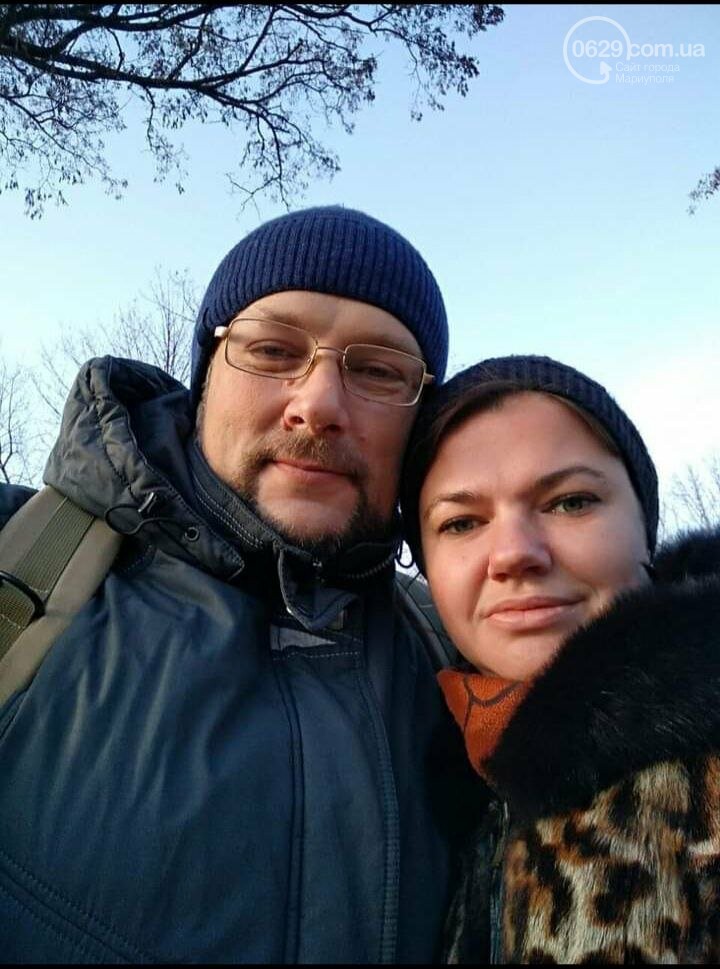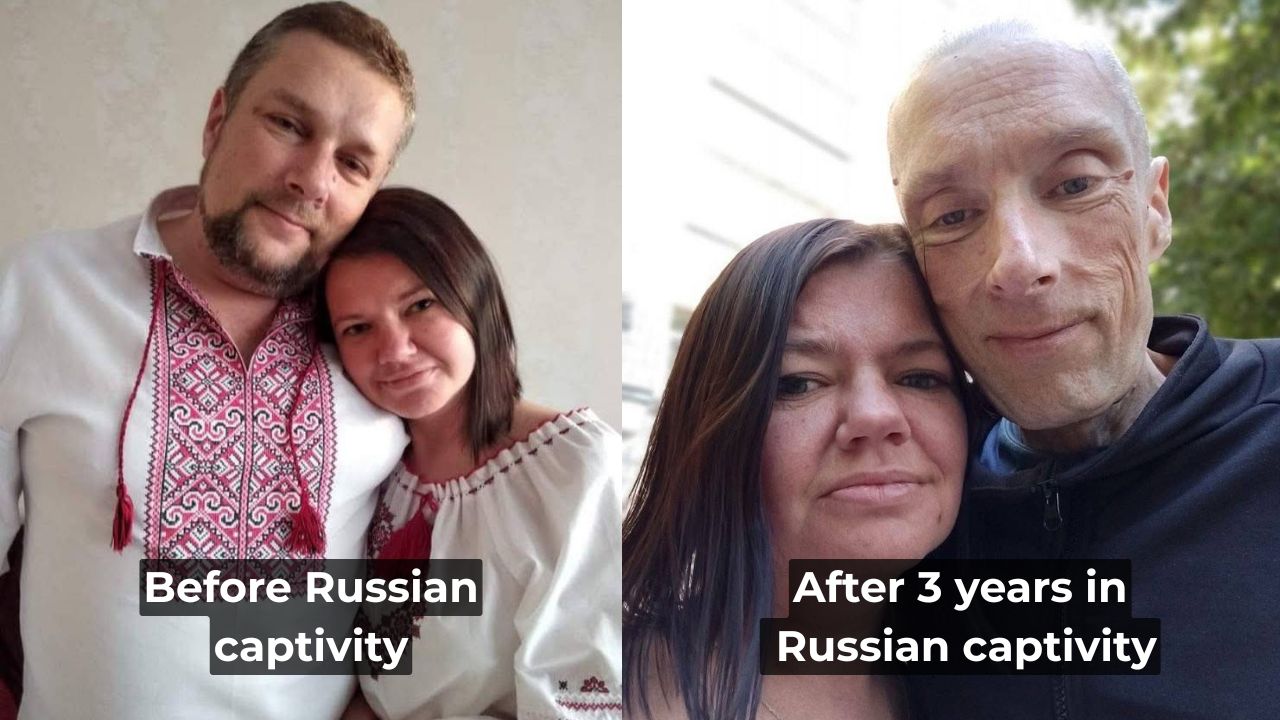Photos showing the stark physical transformation of a Ukrainian soldier after three years in Russian captivity have been circulating online, documenting the inhumane conditions faced by Ukrainian prisoners of war.
The comparative images of Oleksandr Strafun, a reserve officer who defended Mariupol, were published by volunteer Olena Zolotariova from the NGO “Power of People.” The photos show Oleksandr with his wife Olena before and after his captivity period. Both of them consented to have their photos appear online. This is how Russia’s full-scale aggression that began in February 2022 changed their lives forever.
Oleksandr and Olena had lived for each other before the full-scale war. Though he had not participated in the fighting in eastern Ukraine since 2014 and worked at the Ilyich Iron and Steel Works, he felt compelled to serve when Russia invaded explicitly.
On 21 February 2022, Oleksandr contacted military recruitment offices to offer assistance. “He always knew that if something suddenly started, he had no right to stay home,” Olena recalled, according to her interview with 0629 news outlet about Mariupol. When he suggested she evacuate, she refused, citing her two cats and the need to help his parents.
Oleksandr enlisted in territorial defense forces on 25 February, finding the recruitment office nearly empty except for a guard directing volunteers to territorial defense units. The following morning, 26 February, he called from territorial defense headquarters with news that would define their separation:
“He said he wouldn’t return home anymore. I asked, when should I expect you? And he answered: ‘I’ll return after victory.'”

Their final direct communication occurred on 1 March 2022, when Oleksandr requested personal items including soap and socks. Olena was unable to deliver these supplies before contact ceased entirely.
During the siege, Olena remained in blockaded Mariupol despite knowing about the garrison’s order to surrender and the final stand of Ukrainian soldiers at Azovstal. She suspected Oleksandr might not answer calls from unfamiliar numbers, while her own phone had been stolen by Kadyrov forces.
After reaching safety, Olena connected with families of other prisoners through support networks. Through these contacts, she learned Oleksandr had been seen at the notorious Olenivka detention facility in occupied Donetsk Oblast and managed to pass along her new phone number through another prisoner’s wife.
On the night of 29 July 2022, an explosion struck a barracks at the Olenivka prison colony, killing about 50 Ukrainian prisoners of war (POWs), mostly defenders of Mariupol including members of the Azov Regiment, and injuring over 70 others.
Both Russia and Ukraine blamed each other for the attack: Russia claimed Ukraine used a HIMARS missile to strike the prison, while Ukraine accused Russian forces of deliberately shelling the facility to cover up torture and executions of POWs.
The day before the documented attack, Oleksandr called Olena and described unusual activity at the facility.
“He said something strange was happening in the colony, some constant movements. Some people were being taken away, others relocated. He thought, maybe this is already an exchange?” Olena recounted.
She went to sleep hopeful but woke up to the news of the explosion and casualties, not knowing if her husband remained alive. Oleksandr survived because he had been transferred to another facility prior to the incident.
He managed to call her, promising an exchange was coming and telling her to wait. That conversation marked the beginning of an extended silence lasting for years.
In 2025, Oleksandr was returned home to Ukraine in one of the prisoner exchanges that resulted from Istanbul peace talks between Ukrainian and Russian delegations, that, however, failed to reach a ceasefire agreement.
All released soldiers undergo rehabilitation, including urgent medical care and psychological support. Ukrainian authorities also provide financial compensation for their time in captivity, as part of the reintegration process after often prolonged and brutal detention in Russia.




